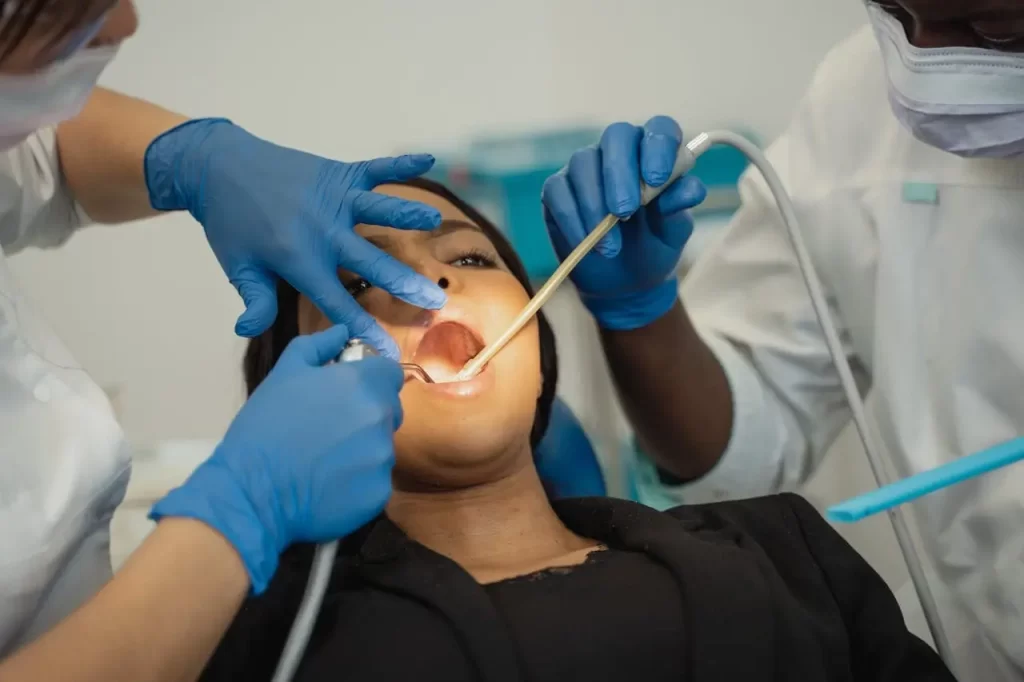Sedation Dentistry for Dental anxiety is a surprisingly common hurdle that stands between many people and achieving optimal oral health. Studies suggest that a significant portion of the population experiences some level of anxiety about visiting the dentist, with a smaller subset suffering from dental phobia – a debilitating fear that can completely prevent them from seeking necessary dental care. This avoidance can lead to a cascade of problems, from cavities and gum disease to tooth loss and even systemic health complications.
Traditionally, dentists have employed various techniques to manage patient anxiety. These might include offering calming reassurance, using numbing medications, or providing headphones with music. While helpful for some, these methods often fall short for those with severe anxiety.
Sedation dentistry has emerged as a game-changer, offering a spectrum of medication-assisted relaxation options to transform the dental experience.

Understanding Sedation Dentistry
There are three main categories of sedation dentistry, each offering a different level of patient consciousness:
- Minimal sedation: This mild form, often achieved with nitrous oxide (laughing gas), helps patients feel calmer and more relaxed, but they remain fully conscious and responsive throughout the procedure.
- Moderate sedation: Administered through oral medications, moderate sedation induces a deeper state of relaxation. Patients may become drowsy and have minimal memory of the procedure.
- Deep sedation (IV sedation): This strongest form of sedation dentistry uses medication delivered intravenously (through a vein). Patients may appear to be asleep but can be easily roused with stimulation.
Each type of sedation offers distinct benefits. Relaxation, reduced pain perception, and even amnesia (in moderate and deep sedation) contribute to a more comfortable and stress-free dental experience.
Ideal Candidates for Sedation Dentistry
Sedation dentistry is particularly beneficial for several groups of patients:
- Individuals with severe dental anxiety or phobia who struggle to tolerate traditional dental care.
- People with sensitive teeth or a strong gag reflex can make dental procedures difficult.
- Patients undergoing complex or lengthy dental procedures, where sedation can enhance comfort and cooperation.
The Sedation Dentistry Process
To ensure a safe and effective experience, sedation dentistry follows a specific process:
- Pre-operative consultation and evaluation: A thorough discussion with your dentist will assess your medical history, anxiety level, and suitability for sedation.
- Choosing the right type of sedation: Based on your needs and the planned procedure, your dentist will recommend the most appropriate level of sedation.
- Monitoring vital signs during the procedure: Throughout the appointment, a qualified dental professional will closely monitor your vital signs to ensure your safety.
- Recovery and aftercare instructions: Following the procedure, you’ll be monitored in a comfortable environment until you’re fully recovered. Specific aftercare instructions will be provided based on the type of sedation used.
A Brighter Smile with Less Fear
Sedation dentistry empowers patients to overcome their anxiety and achieve optimal oral health. By eliminating fear and discomfort, it allows people to receive the dental care they need to maintain a healthy smile. This can significantly improve their quality of life and overall well-being.
Conclusion
Sedation dentistry is a valuable tool in the modern dentist’s arsenal. It offers a safe and effective way to manage anxiety and ensure a comfortable dental experience for all patients. If dental anxiety has been holding you back from getting the care you deserve, talk to your dentist about it. It might just be the key to unlocking a brighter, healthier smile.
FAQs about Sedation Dentistry
- Is sedation dentistry safe? Yes, sedation dentistry is safe when administered by a qualified dentist with proper monitoring equipment.
- Will I be completely unconscious? Depending on the sedation method, you may be awake but relaxed or completely unaware of the procedure.
- Are there any side effects? Some patients may experience drowsiness, nausea, or dizziness after sedation. These side effects are usually mild and temporary.
- How long will the effects of sedation last? The duration of sedation effects varies depending on the medication used.
